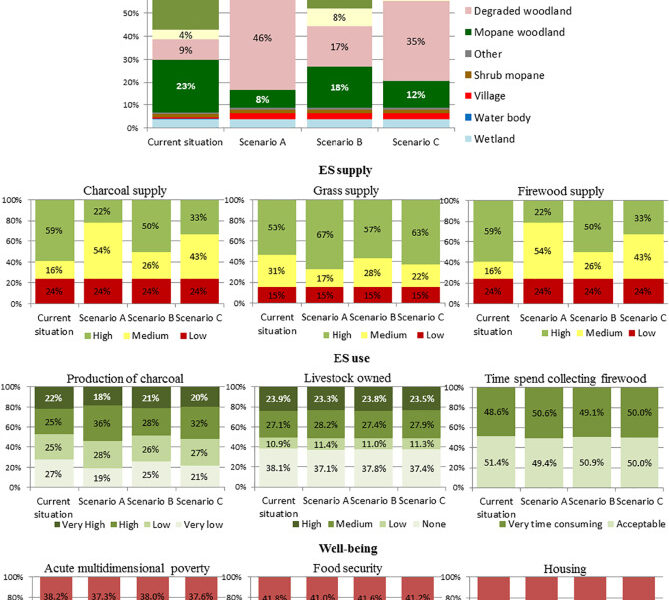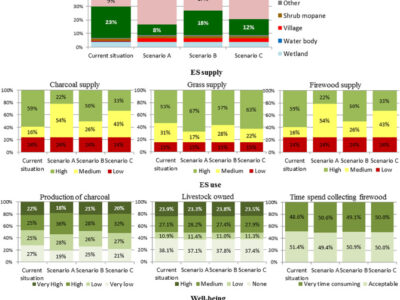In a dry rural district in Mozambique, charcoal is spreading as an important income source for certain families, driving woodland degradation. In that context, this study aimed to analyze the contribution of woodland ecosystem services to rural well-being and poverty alleviation, accounting for access mechanisms and trade-offs between ecosystem services. Using Bayesian Belief Networks, GIS, and stakeholder participation, the study investigated the impact of three policy scenarios on the district’s land use and land cover (LULC). These land use scenarios were then translated into a probabilistic model that integrates biophysical and social data.
This study facilitated stakeholder engagement, improved understanding of the impact of LULC change on woodland ecosystem services, and fed into multi-scale participatory futures for Mozambique.
The scenarios were made in: 2014
The scenarios look out to: 2035

